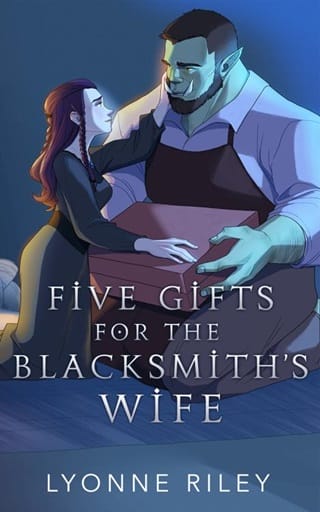1. Harper
Four Months Earlier
Don’t let it be a heart attack. Or a stroke. Or even a broken hip. Let the reason for pressing the panic button be a dumb one.
As the director of Boston’s most reputable rehab and assisted living complexes, I couldn’t pass a resident’s emergency off on anyone else. The thought pulsed rapidly through my mind before the guilt kicked in. Dammit. I truly was the most selfish woman on the planet.
Mr. Roper, although difficult and grumpy, meant well—most days. Plus, I should be worried for his well-being, but honestly, I was terrified that his emergency would make me late to pick up my daughter.
It was Friday.
The Friday .
The day she’d been waiting for since her birthday. And I couldn’t be late.
With my seven-year-old, schedules and pickup times mattered. When anything went even slightly off plan, she didn’t handle it well. And in the moment, I feared that what should have been the best day of the year for her would turn into a nightmare for both of us.
I hardly gave the courtesy tap on the studio apartment door before I burst inside.
“Mr. Roper,” I called when I didn’t immediately see him. Rooms here weren’t big, but the area past the bathroom wasn’t visible from the doorway. Thankfully, panic hadn’t set in as I turned the corner and found him sitting comfortably in his green velvet La Z Boy.
“It’s the wrong one again.” He shook his head, his frown one of annoyance as he glared at the TV. He didn’t even look pale.
I skidded to a stop, my heart still pounding. My brain was warring with itself. On one hand, I was happy that this wasn’t an emergency. But on the other, I was irritated because this wasn’t an emergency.
“No need for a bus,” I said into what was basically a walkie talkie.
“Damn television box. Never plays the right show. We saw this one last week.” The eighty-eight-year-old jabbed the remote into the air, pointing it at the screen and furiously pressing buttons.
For employees in assisted living facilities like Boston Lights, technology was both friend and foe.
I sighed, my shoulders dropping. “You hit your panic button.” Again.
“Yes.” The wrinkles on his forehead deepened as he lifted his brow. “I called for help because I currently need assistance.”
When the board had approved panic buttons on wristbands for every resident, they clearly hadn’t considered all the ramifications. The ability to contact staff quickly in an emergency was great, and the GPS component assured we could easily locate everyone. However, for every one genuine emergency, there were at least one hundred instances where the button had been used as if it was a flight attendant call button.
“Mr. R?—”
“Henry,” he corrected with a glower. “And don’t tower over me like the Redwoods.”
“Henry.” I kneeled next to his chair and rested my palm over the back of his veiny hand. I lightly tapped the square device that sat on a rubber bracelet. “This is for emergencies.”
“Missing Kevin and Tommy fixing up the Glen Ridge Place is an emergency.” He harrumphed.
I squeezed his hand and turned back to my com. “Can someone send tech support to 2203, please?” As I focused on him again, I tapped the gray rubber. “This is for actual emergencies. Use your phone to call for TV help. It’s set to speed dial.”
“Not interested in pushing damn buttons on the phone. I can’t remember who is eight and who is four. You know how many times I’ve asked the kitchen why the six-o’clock news isn’t working on my TV? What is this world coming to?” he muttered. “And no one my age can make out that tiny-ass writing on the number pad.”
I sighed.
“At least I’m not like Charlie. He called for help with his pants.” He burst into laughter, which quickly turned into a choking cough.
I gave him a quick pat on the back.
I hadn’t found Charlie’s “emergency” funny. Not when I arrived, heart pounding, to discover that the problem was his shirt had been caught in his zipper.
“There’s no bigger emergency than lunch not sitting right and your damn zipper not opening.” Henry was still half laughing, half coughing as he shook his head.
“That was unfortunate.” Scissors had saved the day. Otherwise, we would have had a big mess on our hands.
“That was a shitstorm.” He clapped.
I frowned and fought a shudder. “Not literally, thank God.”
A tap sounded on the open door. “Tech support, Mr. Roper?” Lexi peeked into the room.
“Henry,” he answered, the smile sliding off his face. “This damn picture box is playing the wrong show again.”
“I hate when those damn picture boxes do that.” The twenty-two-year-old practically skipped into the room and took the remote out of the old man’s hand.
He narrowed his eyes at her. “Don’t you sass me.”
“Wouldn’t dream of it.” Her expression was the exact opposite of his, all sunshine and rainbows. Clearly, it was an effective way to mess with the guy.
I left them to it and headed back to the office to turn over control of the five hundred–resident building to the night manager, Jacki, who had come in more than an hour early to cover for me today.
“Have fun at the game,” she said, taking the radio from me. “I’m sure Piper is excited. So don’t be late. I’ve got this.” Jacki was a mom of two herself, and although she didn’t fully relate to my struggle with Piper, she was supportive and a great listener.
“Thanks,” I rushed out. My stomach burned. Even with the shift change, I was behind schedule. I grabbed two Tums from the roll in my pocket, hoping to settle the scorch of stress, and headed out.
Fate wasn’t on my side today. A car accident and the subsequent rubberneckers slowed me down. Thirty minutes later—twenty minutes late—I parked at the daycare center. I popped two more Tums and swallowed down the dread threatening to overtake me. The unknown always did this to me, and I never knew what kind of day my child may have had.
The car door wasn’t even closed behind me before Doreen, the facility director, was pushing through the front entrance.
My stomach sank. That was a bad sign, if experience had taught me anything.
Sam, my three-year-old, spent almost nine hours here each weekday though he was never the issue. It was always Piper. My daughter only spent two hours at the YMCA’s day care program after school each day, yet she managed to cause mayhem.
I braced myself.
“I warned you.” Doreen crossed her arms.
She had warned me, probably four times, that Piper was on her last chance. I’d used up any good grace she had offered. Piper wasn’t being difficult for the hell of it. Her behavior was a neurological response. Her body didn’t produce the dopamine needed for her to feel comfortable. She was living on the edge of fear. Unfortunately, despite how many times I’d explained it, most people only saw a poorly behaved child.
“What did she do?” I tried to keep the hesitancy out of my voice. It was a challenge, though, because I wasn’t sure I wanted to know. But I had to face the music. Because as much as I wanted to give up some days. I couldn’t. There was no one else. So I pulled my shoulders back and waited.
“You’re late.” She cocked a gray brow.
I winced. There was no denying it. “Di?—”
“We tried your trick. We removed the clock from the room.” She shook her head. “Not only was it ineffective, but it became a sticking point. She fixated on the fact that it was missing.”
My chest tightened with dread.
She tapped her fingers against her arm, drawing my attention to her opal-colored nail polish, one brow raised in expectation of my response.
Piper did tend to fixate, and when she was unsettled, things never ended well. “And she wouldn’t let up until you told her the time.”
“Clearly.” Doreen’s lips flattened, the lines around her mouth deepening.
“And?” I asked, trying to pretend I didn’t want to disappear into the pavement.
“At four o’clock, when you weren’t here, she became agitated.” Her lips turned down, her eyes hardening.
Agitated. That was a nice way to say she’d thrown a fit.
“And by four ten, she was hysterical. We tried to settle her, but when Joy touched her shoulders, Piper bit her.”
My shoulders slumped, and my heart squeezed painfully.
“Thankfully, she didn’t draw blood this time.”
Shame flooded me, weighing me down heavily. I did everything I could to help my daughter. Creating schedules so she knew what to expect, giving her warnings when things were going to be different. I’d read every book I could get my hands on and I listened to the advice of every doctor. I was exhausted, and it still wasn’t enough.
“She’s calmed down now. She’s in the office with her iPad and headphones.”
“Thank you.” That eased a little of the trepidation that seemed to be a constant in my life.
She frowned. “Harper.” Man, she sounded exactly like my high school principal calling me into her office.
My skin crawled, and the modicum of calm I’d found fled. Dammit. I knew what was next.
“We understand there are special circumstances here, but we can’t keep doing this.” Her tone was soft, but her expression was firm, unwavering.
I swallowed and nodded. “Right.” Another day care down.
“You’ll need to find other arrangements moving forward.”
I blinked hard, fighting back the heat building behind my eyes. It was Friday, thankfully, which meant I had two days to find another day care willing to take a neurodiverse child. No problem.
“Come on. She’s waiting for you in my office.”
Silently, I followed Doreen inside, and as we strode down the hall, the only sound was the clicking of our heels against the tile floor. In the small outer office, Doreen’s assistant sat at her desk, avoiding eye contact. On the other side of the space sat my daughter.
Piper’s back was to me, so all I could see were her red pigtails under her royal blue headphones. If I had to guess, she was listening to one of the Boston Revs’ most recent games. She’d watched each multiple times. It was the only thing that kept my poor child calm. The headphones weren’t completely noise canceling, but they at least took the edge off for her.
Knowing better than to surprise my daughter with any kind of physical sensation, I didn’t touch her. Instead, I circled around her and stood where she could see me. Her eyes drifted to my shirt and stopped there. Then she pulled the headphones off.
“We are going to be late,” she accused without meeting my eye.
“No, Pipe, we aren’t. I told you that as long as we leave by 5:45, we’ll make it to the stadium in time to find the seats before the game starts.”
“Uncle James said we were sitting on the field.” She blinked, her lips turned down.
“No, he said our seats are in the first row on the third base line,” I reminded her.
I’d better make that clear now. The last thing I wanted was for her to melt down at the stadium when she realized we couldn’t sit in the grass. And I had no interest in explaining to James that we’d missed the game after he spent God knew how much on this birthday present for Piper. Seriously, who gave a child tickets to game seven of the American league championship?
But Uncle James excelled in the art of buying my kids’ love. My jaw locked, and a niggle of guilt ate at me. That wasn’t entirely fair, especially with our complicated relationship, but it also wasn’t inaccurate. He’d meant well when he gave her these tickets, but very few people understood my child and the challenges that came with her. A game sounded like fun on the surface. But he was clueless about all the details, all the difficulties associated with changing her routine, taking her somewhere new, putting her in a place with so many people and so much stimuli.
Piper nodded, still not meeting my eyes. “Yes. It’s going to be the best.”
I wished I could agree. But in my heart and in my head, I knew it would be exactly the opposite.
 Fullepub
Fullepub 



